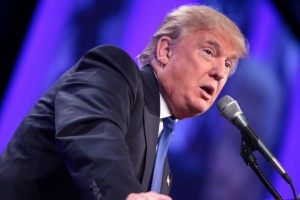
It is possible that Wisconsin may be Donald Trump’s Waterloo. After all, he did lose Waterloo, Wisconsin. While Senator Cruz enjoyed a five-point lead in the polls ahead of the voting, he over-performed and won by 13 points, taking 48 percent of the vote. Donald Trump finished second with 35 percent.
Turnout broke a record set in 1980, when a guy named Ronald Reagan (perhaps you’ve heard of him) was running.
Tuesday night’s win was significant for Senator Ted Cruz, not only for the size of the win, but what it means for the chances of a contested convention in Cleveland.
For Donald Trump to prevail with a majority vote of the delegates on the first ballot, he would need to win at least 60 percent of the delegates in the remaining primaries. These states may favor Trump, but it will be difficult for him to reach the goal of 1,237 delegates.
Meanwhile, Cruz continues to do well in the delegate selection process, which is separate from the primary contests.
By the way, it is a matter of Republican orthodoxy that trade deals create jobs. But according to exit polls, 54 percent of Republican voters believe that trade deals cost American jobs. Paul Ryan, call your office.
Here’s another interesting finding from the exit polls: 69 percent of Wisconsin’s GOP primary voters support a temporary moratorium on Muslim immigration.
Washington elites in both parties were mortified when that idea was first put on the table. Yet, the overwhelming support for this idea among Republican primary voters in Wisconsin is a significant marker of the incredible disconnect between those who govern us and the governed.
The big loser of the night was John Kasich. He’s a really nice man, but like Jeb Bush, I believe his tone and soft demeanor on so many key issues makes him an unlikely nominee. At this point, he is almost a fringe candidate.
Gary L. Bauer served in President Ronald Reagan’s administration for eight years, as Under Secretary of Education and as President Reagan’s Chief Domestic Policy Advisor.


